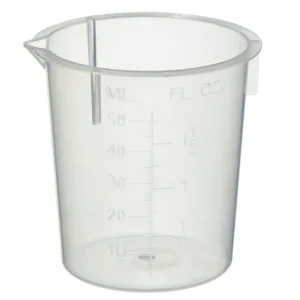TCP Fuel Treatment
Keep your investment running clean and smooth with TCP!
 Since the introduction of 100LL as the main fuel source for low compression engines, Alcor® has been the leader in providing pilots a fuel treatment that eliminates excess lead before it causes engine fouling. TCP is the only FAA approved aftermarket product of its kind. A simple one-shot treatment with every fuel fill-up help prevents lead fouling on valves and spark plugs. (Recommended dosage is 1 oz. or 30 ml of TCP for every 10 gallons of leaded fuel).
Since the introduction of 100LL as the main fuel source for low compression engines, Alcor® has been the leader in providing pilots a fuel treatment that eliminates excess lead before it causes engine fouling. TCP is the only FAA approved aftermarket product of its kind. A simple one-shot treatment with every fuel fill-up help prevents lead fouling on valves and spark plugs. (Recommended dosage is 1 oz. or 30 ml of TCP for every 10 gallons of leaded fuel).
Give yourself peace of mind, keep your engine running cleaner, smoother and with more efficiency by relying on Alcor’s proven TCP fuel treatment.
*TCP beaker dispenser sold separately. (1oz/30 ml per 10 gallons of fuel)
*TCP is a hazardous material. Please exercise caution and read all labels. To view Safety Data Sheet (SDS) please click on the literature tab above.
FOR CHEMICAL EMERGENCY (Spill, Leak, Fire, Exposure or Accident): Call INFOTRACK – DAY OR NIGHT – (800) 535-5053 Outside the US, or (352) 323-3500
Q: What is TCP Fuel Treatment and what does it do?
A: TCP stands for tricresyl phosphate which is an effective tetraethyl lead scavenger. During the combustion process TCP chemically converts TEL to lead phosphate, which is less conductive, thereby reducing spark plug fouling. The use of TCP does not impact the power provided by leaded fuel.
Q: Is Alcor’s TCP Fuel Treatment FAA approved for use in aircraft engines?
A: Yes, TCP is approved for non-turbocharged Continental®, Lycoming® and Franklin engines. Other engines such as four stroke Rotax are also reported to benefit from using TCP, but as of now do not have approvals.
Q: What is the suggested method for using TCP?
A: TCP is poured into a clean 50 ml beaker and then placed directly into the fuel tank. One ounce or 30 ml treats 10 gallons of 100LL Avgas or other leaded gas.
Q: Why do I need a beaker to get TCP out of the can?
A: The beaker is required to mix the correct dosage while minimizing potential spills which may cause damage to painted surfaces. The Alcor 50 ml beaker are available through Alcor distributors.
Q: Will TCP damage the rubber bladder tank, sealing compound or fiberglass tanks in my aircraft?
A: No, as the concentration of active ingredients is very low.
Q: Is there a shelf life for TCP?
A: TCP will last several years providing the can is kept sealed and that the can is stored under conditions that minimize rust.
Q: I have an auto gas STC for my airplane. Would I benefit from using TCP in my plane?
A: TCP is mainly for scavenging TEL. There is no data on its scavenging abilities of other compounds.
Q: Why does the label read “Do not carry aboard aircraft” and “Store can upright at all times”?
A: TCP is a hazardous substance and must be handled with caution. Emergency information is on can labels and on the Alcor website.
Q: Where can I buy TCP?
A: TCP Fuel Treatment can be purchased through our distribution network or on our e-commerce store.

